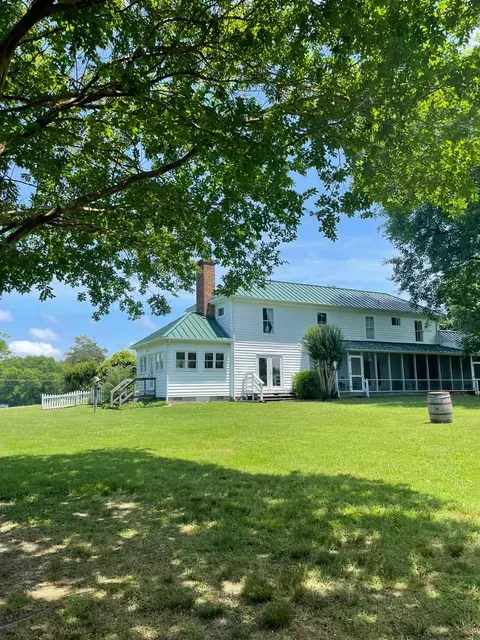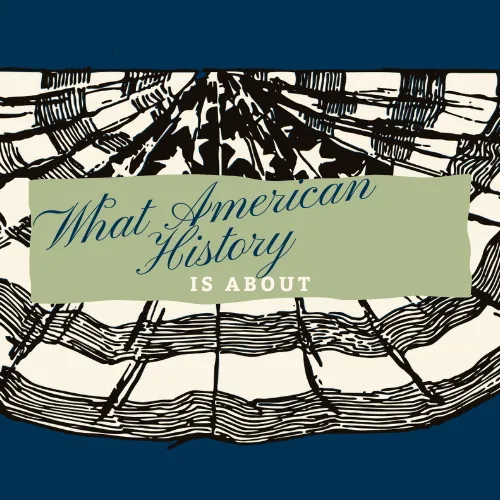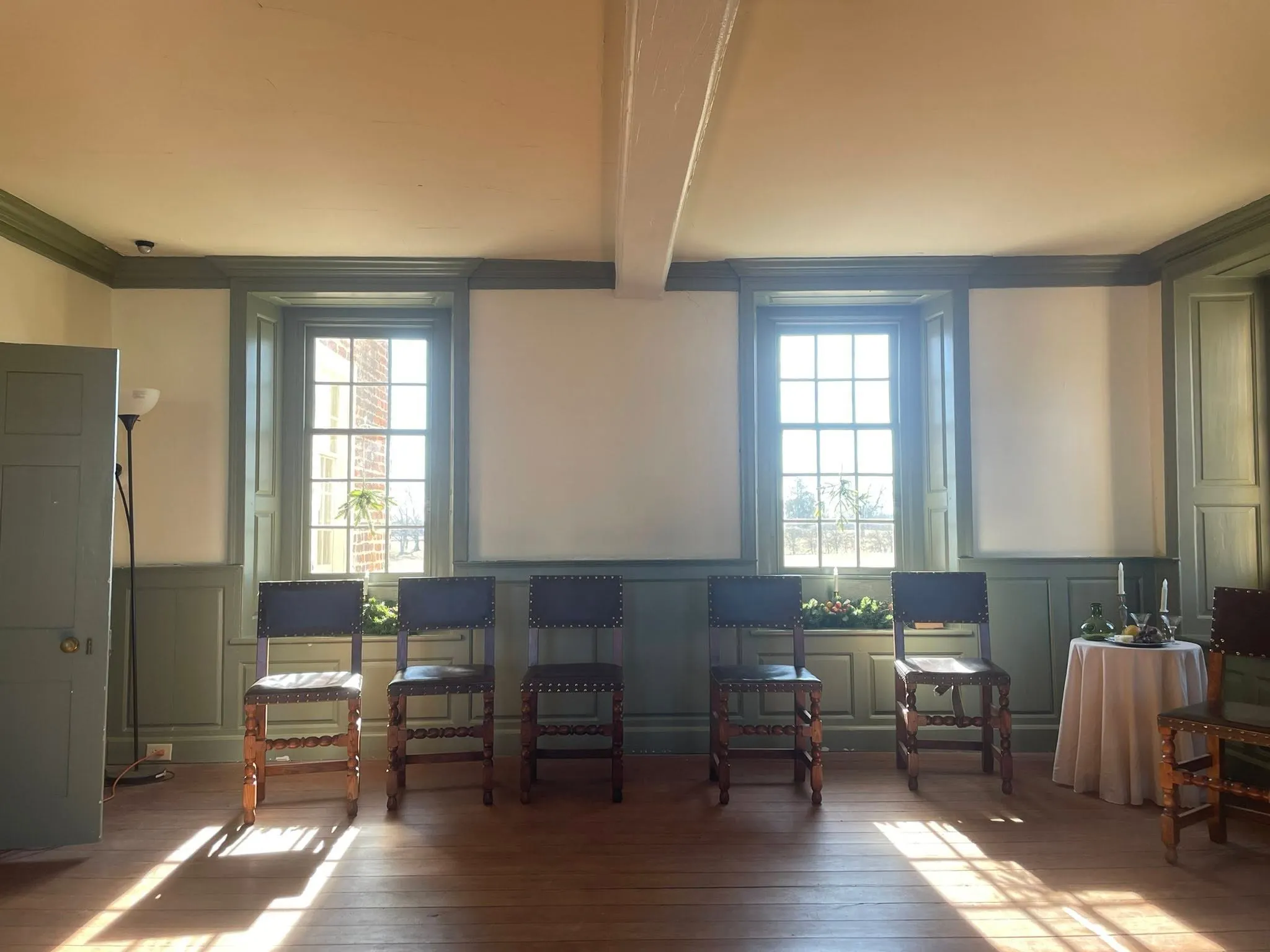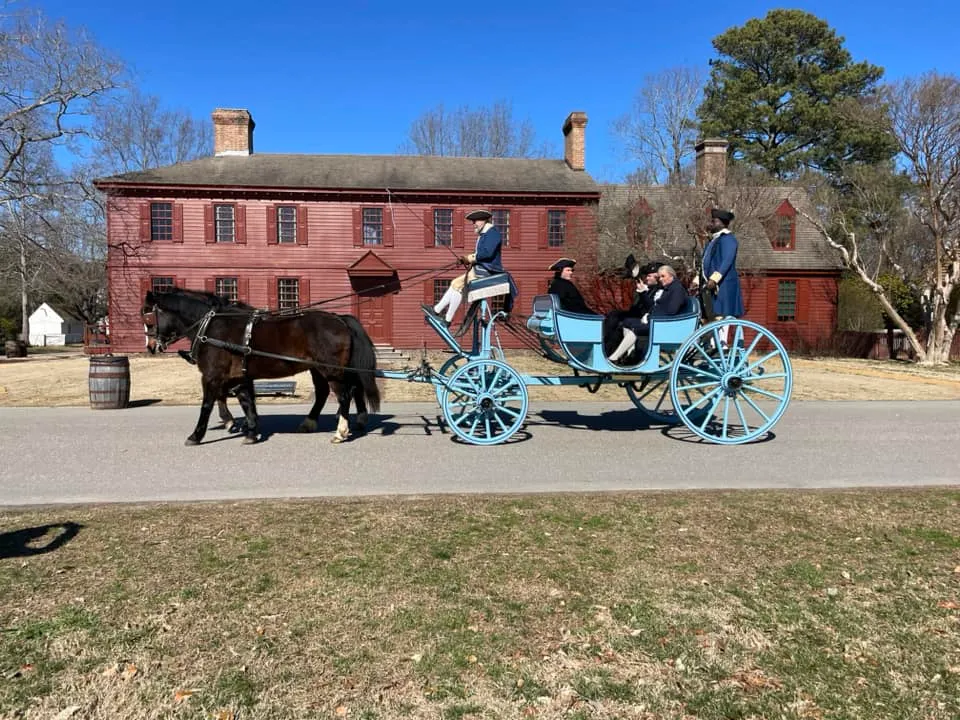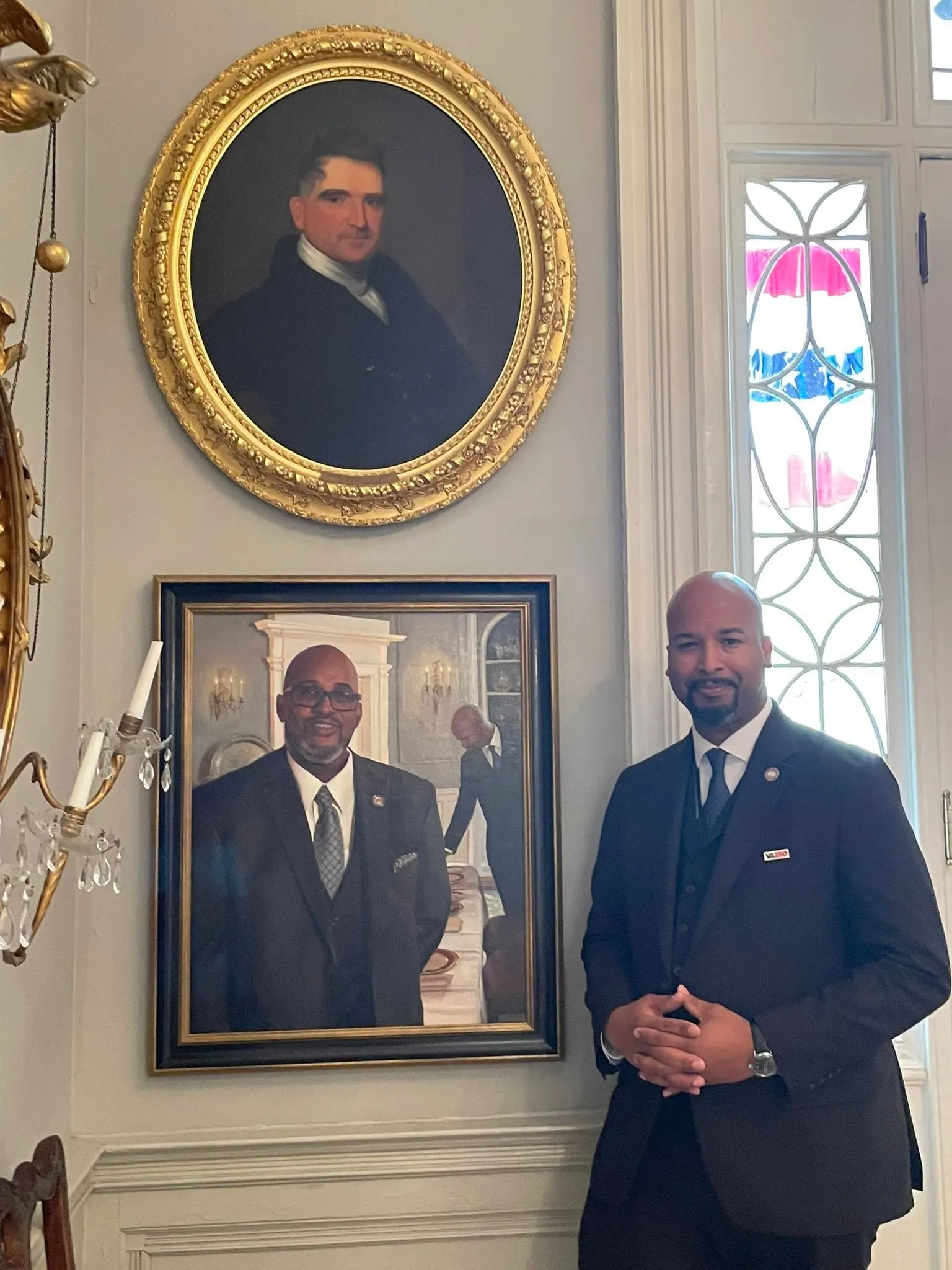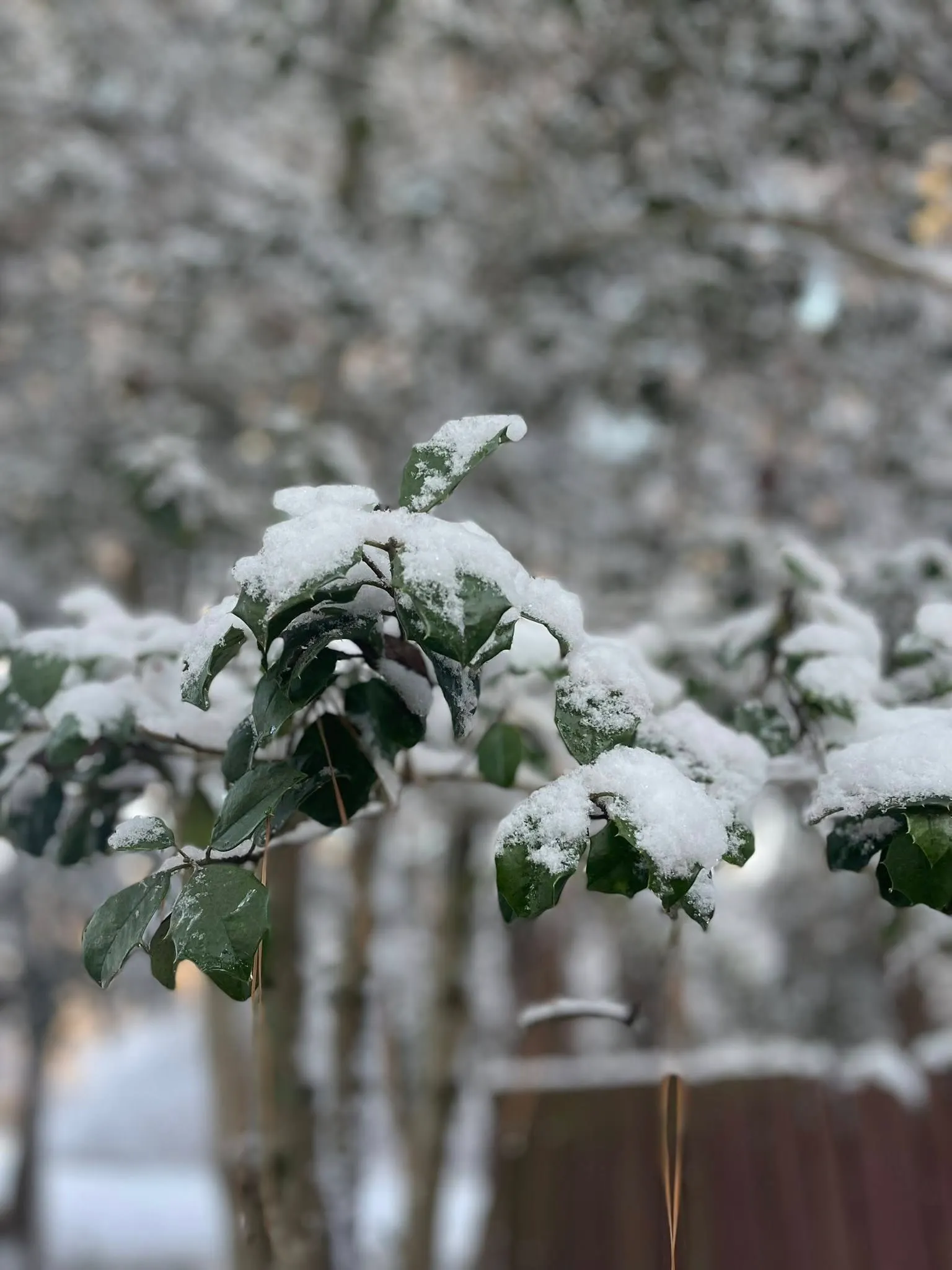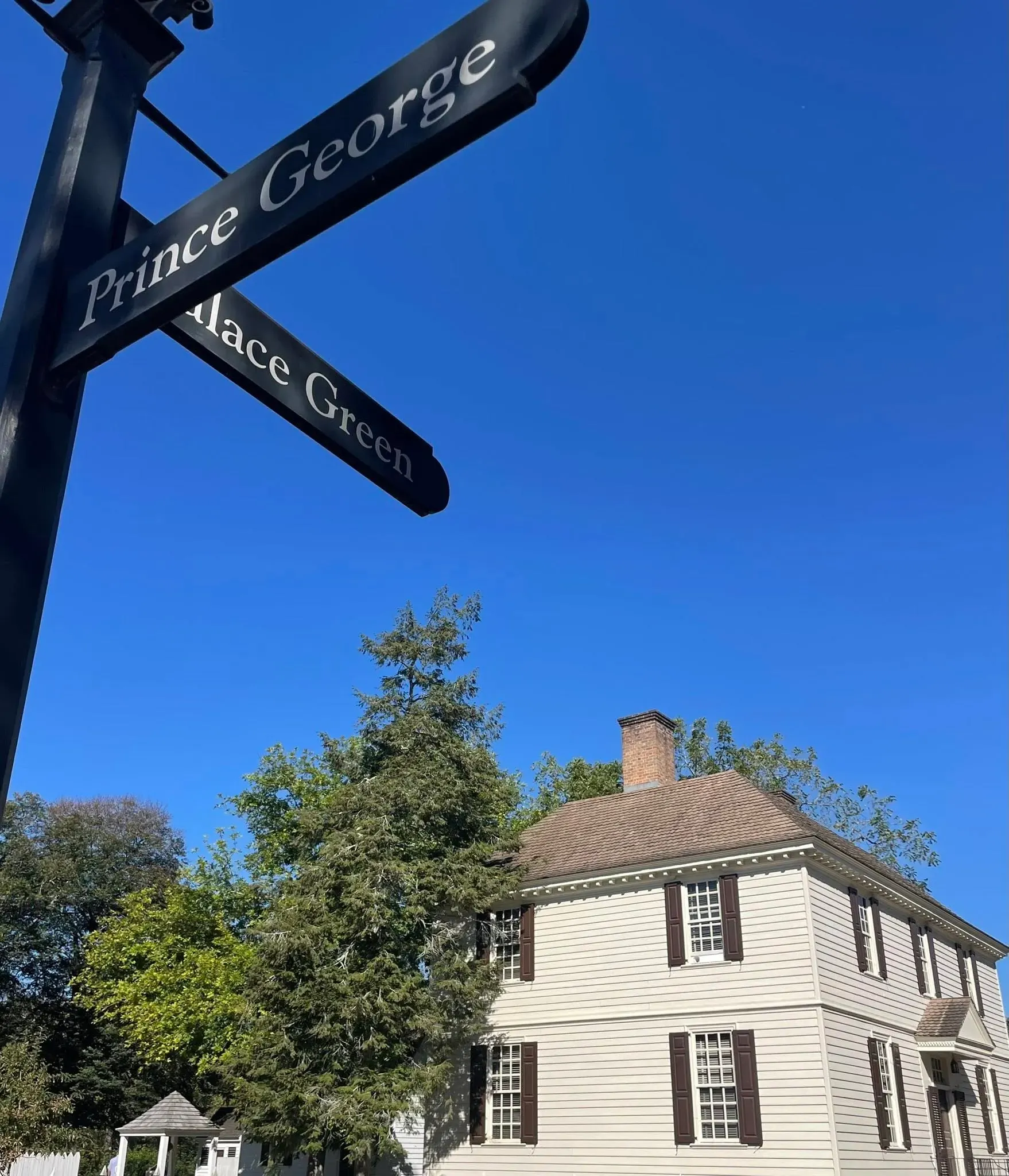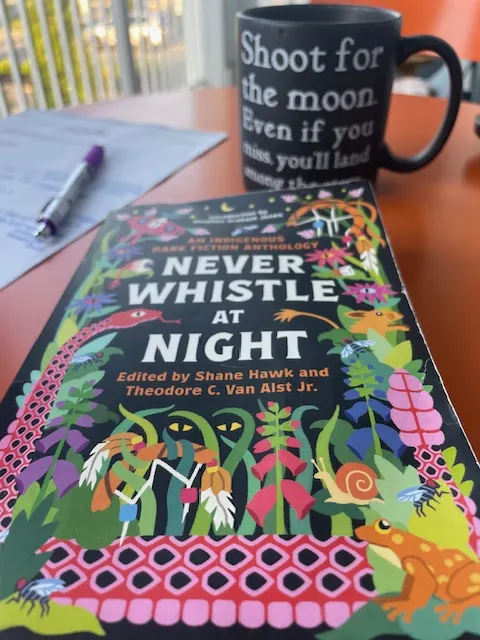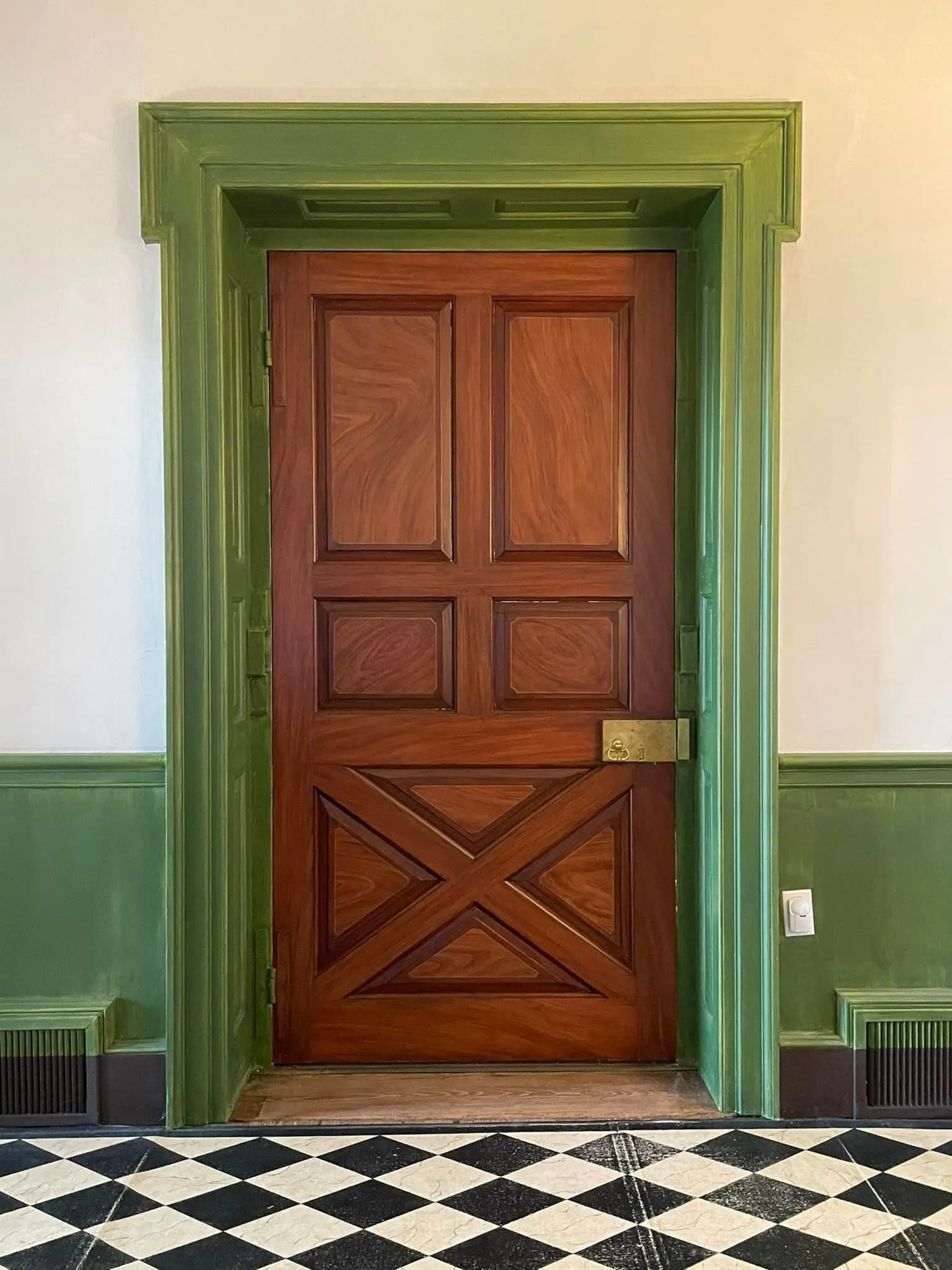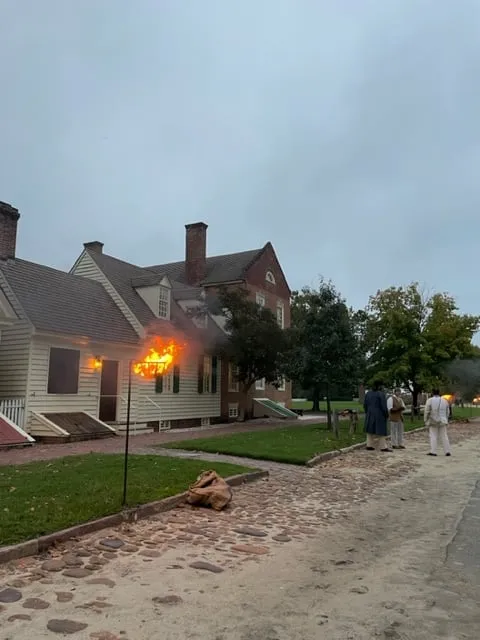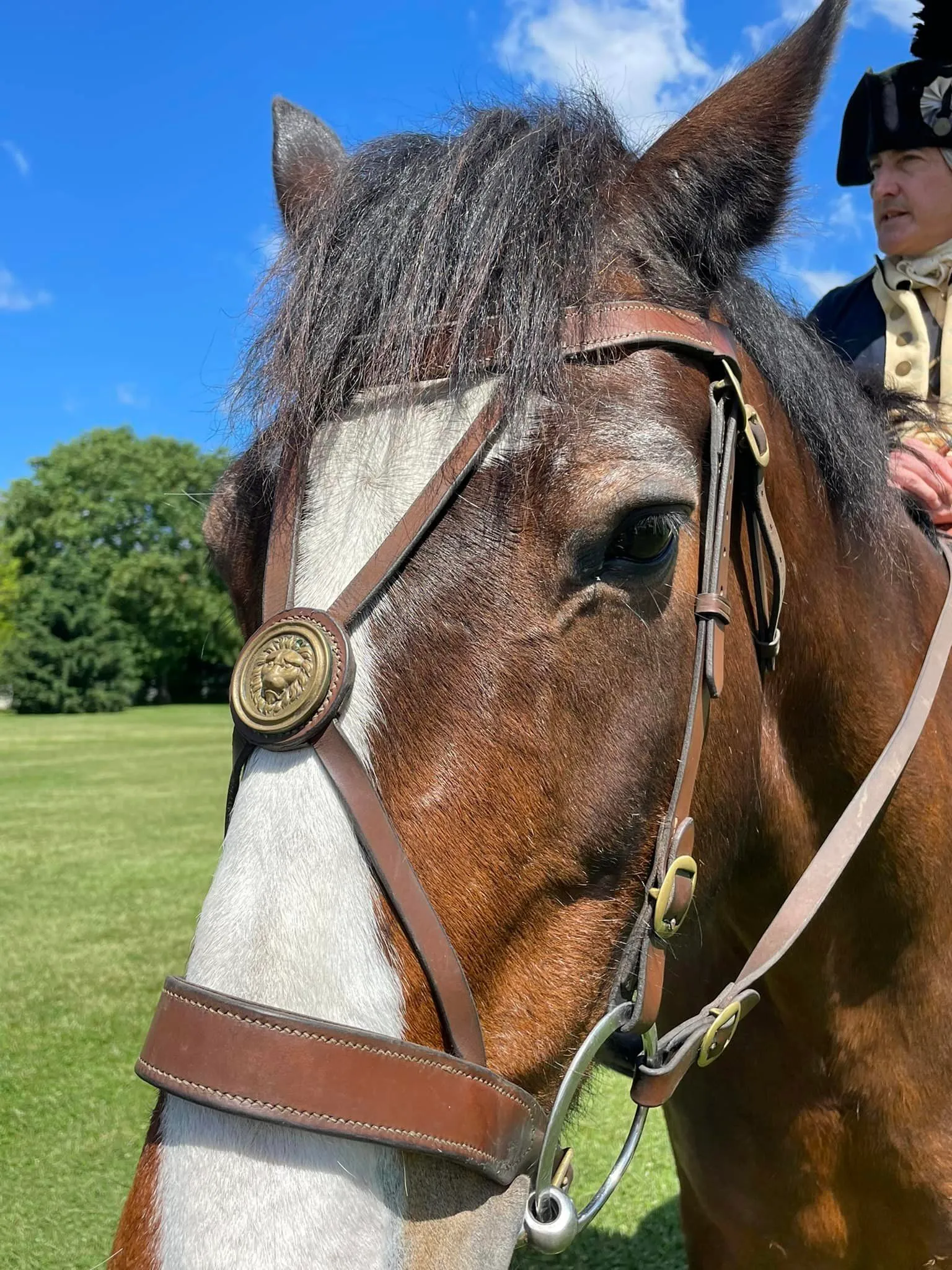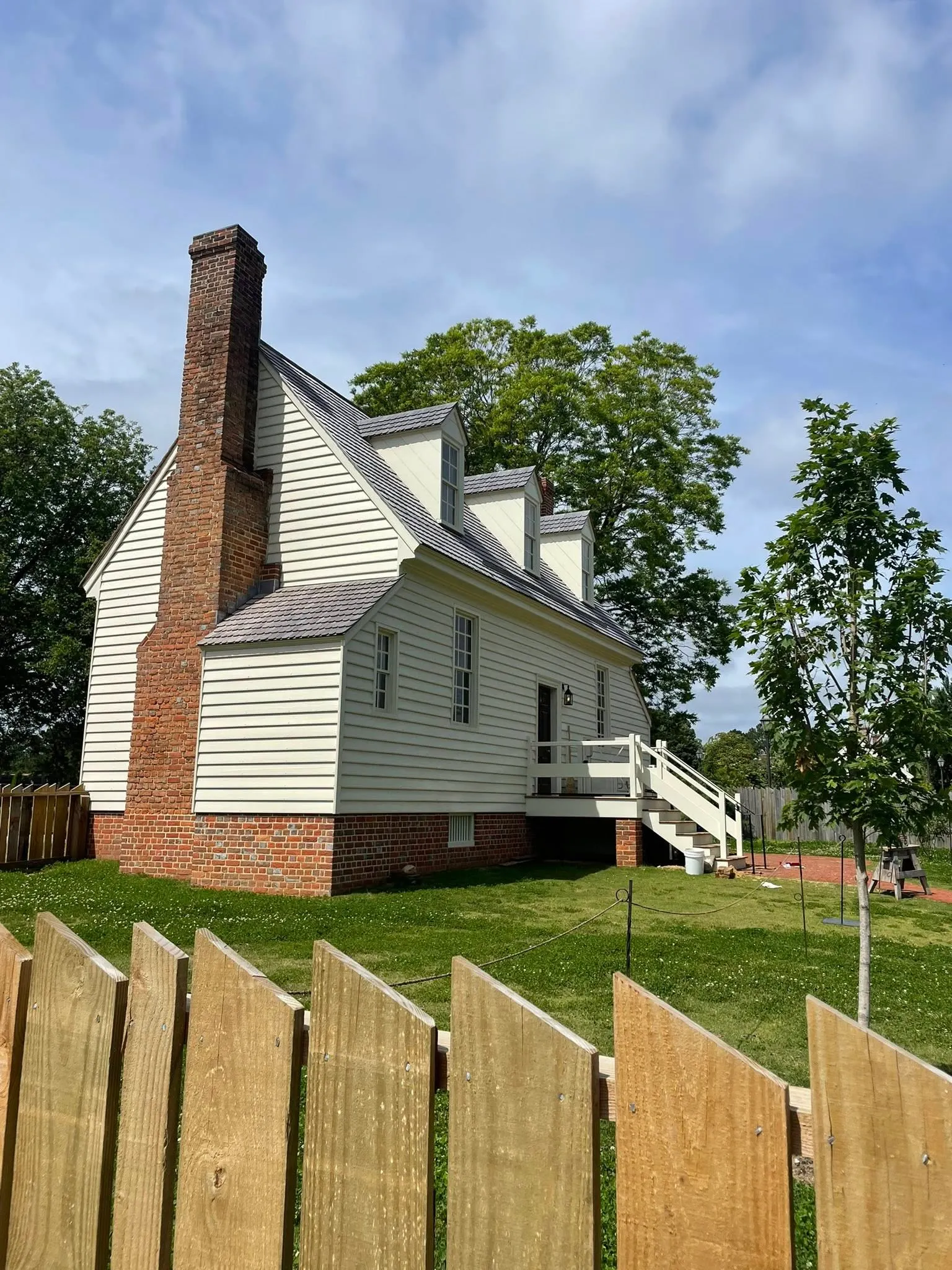Discovering Historic Peace Hill Farm: A True Blend of Past, Present, and Future
Susan Wise Bauer is living this blog's mission.
Susan Wise Bauer's mom was Jessie Mae Tench Wise. She was born in Charles City on December 10, 1937 to Robert and Lucille Tench. Her life was to change early on. She was raised at Peace Hill by Luther and Amelia Morecock, who Susan fondly remembers aloud as "Uncle Luther" and "Mimi."
Jessie's daughter is blending the past, including her personal family history, with the present. It's all guiding her mission for our future.
Steeped in the beginnings of our United States, Virginia, especially the region surrounding Historic Peace Hill Farm, is a mecca for history-lovers. (It's one reason we were drawn to moving here).
For anyone who loves some of the 'lesser-known' bits that connect to the 'more-known' bits, this post is for you.
For anyone who loves the mission of this blog... this is for you. Because Susan Wise Bauer and my visit with her- well, that embodies the mission.
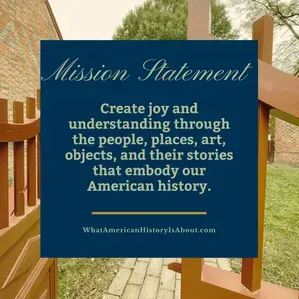
Necessary disclaimer: As a blogger, I use affiliate links sometimes! I may receive commission from purchases I share; it does not change your price but sometimes you might get a discount.
The past of Historic Peace Hill Farm.
Not uncommon: historical records of a place and its people were burned up in fire, especially during the Civil War era in the south. More common: oral history passed down through family, neighbors, and long-time residents.
The 1698 patent of the land to John Pettiver, an English settler is known.
And following, as far as is known and remembered, the Peace Hill property belonged to Luther Morecock's family. Luther, with his wife Amelia (Mimi), not only raised Jessie Tench, but jump-started the legacy of what is now Historic Peace Hill Farm.
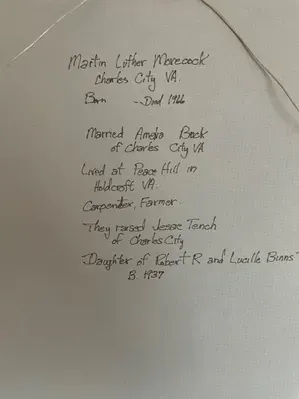
Note on back of Luther's photo in the home.
In the 1890s, two brothers of Peace Hill split the property. The Victorian era house still stands and is now the bed and breakfast (B&B) Susan and her husband operate since purchasing the second parcel back.
While the property was split, both sites had something in common: henhouses and lots of them! In fact, there was solid reasoning for having chicken farms in this part of the Tidewater: they were easy to transport in the early to mid 20th century, when Luther and Mimi were around.
After hearing the details of their venture, I can picture Mimi in her Model T getting their eggs to market.
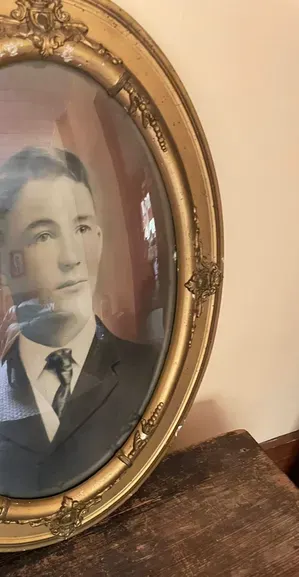
Luther Morecock photo
As for Jessie Tench herself, she made history by being the first girl from her high school in Charles City to go to college! Inheriting Peace Hill from the Morecocks and with an interest in gardening, she made herself a micro-climate expert. Taking care of and being innovative on the land for over 70 years.
While the original Morecock home is still on the site where Susan's family lives today, her parents added so much to it in the 1970s. They utilized recycled barn wood and ensured preservation of the past through architecture.
The look of the home seamlessly moves through the generations, though there are clues to the fact additions were made.
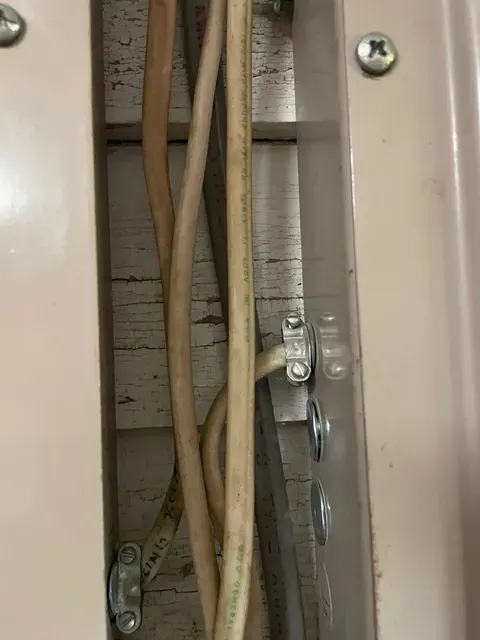
Clues of original home behind the walls.
Today's experience at Peace Hill Farm.
Agri-tourism exemplified.
Agri-tourism is a term that was new to me and Susan explained it well. Her family has combined their innovative methods and diverse experience on the farm (the agri- portion) with bringing people to it (the tourism bit).
Education.
Whether it's home-schoolers (like Susan's a guru of!), class trips, or personal education, you can visit Historic Peace Hill Farm and learn about everything from raising livestock to the concept and practice of regenerative agriculture.
Click here for details.
To book an educational tour, click here for school groups of all types and here for a farm tour of your own!
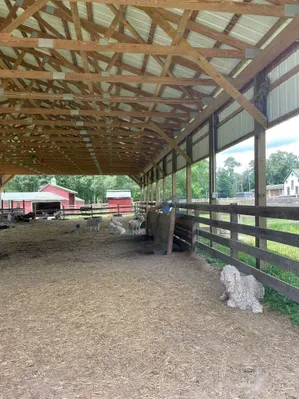
Angora goats.
Family business.
With all the animals, orchards, etc. you didn't think they wouldn't offer you an opportunity to have a bit of Peace Hill at home did you?
Sustainability. Precious resources. It's all important to Susan.
Check out everything from their farm-raised meat to yarn spun from their fleeces (and I looked up the plural on that- correct me if I'm wrong LOL).
Click here to open their Etsy store in a new tab.
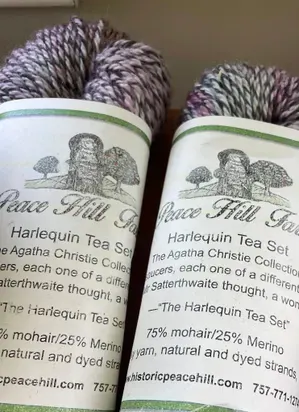
Yarn using Peace Hill fleeces.
Relaxation, retreats, and events.
Another aspect of the family business: accommodations. You can go on your own, with someone you love, your friends, family- truly, solo or group trips! Even retreats for artists, writers, and all types of creatives.
I guarantee you, this will be an itinerary option I'll have in my pocket as I create customized itineraries for visitors to this area. (Interested? Click here to message me on Instagram)
Here are the options at Historic Peace Hill Farm:
Even if you don't plan to spend the night, you can experience the farm's hospitality by making reservations for an Afternoon Tea or Sunday Lunch. And keep an eye out for special events like the Fall Festival and Fiber Fair held annually on the first Saturday in November (plan ahead to visit y'all!).
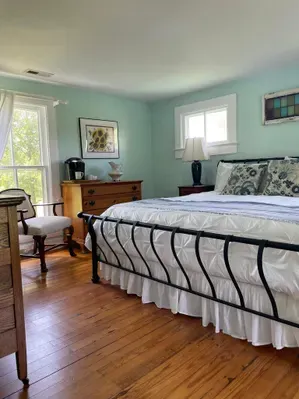
Guest room at Peace Hill B&B
But there's more- there is collaboration and community.
Three men, including Susan's dad and husband, built Lafayette Hall on the property. It's currently used for church services, community gatherings, and yes- weddings!
Lafayette Hall is a credit to this family, whose passion for community was clear to me throughout my visit.
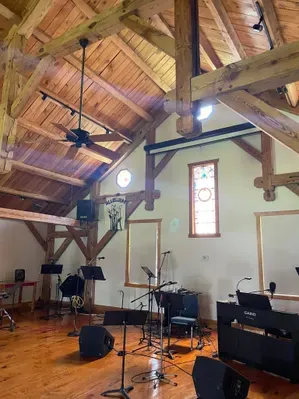
Interior view, Lafayette Hall.
And remember those henhouses? Yes, one is cabin that can be rented, but there is also one next to the B&B that's been converted into event space. What once housed 500 hens is used for private events... but also, festivals, and special events.
And the cool part of this: the expansive outdoor area adjacent as well as the original henhouse features kept intact.
The local food bank is also a partner to Historic Peace Hill Farm. Limiting food waste is vital in Susan's mission.
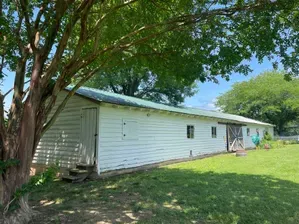
Exterior of henhouse event space.
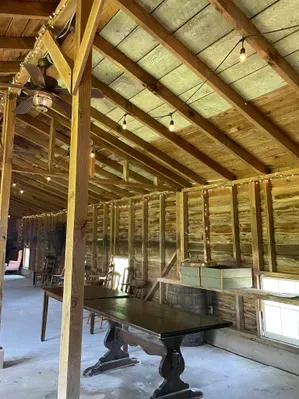
Interior of henhouse event space.
Historic Peace Hill Farm's impact on the future.
Agri-tourism is so necessary. By sharing her family's property, providing a place for agricultural education, and offering opportunities to simply explore, the impact of Susan's work, along with her husband's, will be felt long into the future.
Before I left her, Susan told me to add driving Route 155 to my history-lover to-do list. It's vital to getting a glimpse into the past as well as seeing the present clearly. She enlightened me to knowing it as the historical center of the area's black community.
She told me to learn about Lott Carey, born into slavery in 1790. After gaining his freedom (long before the Civil War) he became a Baptist Minister and headed to Liberia. Read more here.
Understanding the past is clearly a golden ticket into creating success for the future. Being innovative in farming, in business, and in educational techniques- all will lead to a better future.
So below, I'm dropping calls to action before my closing words from history pick for this post!
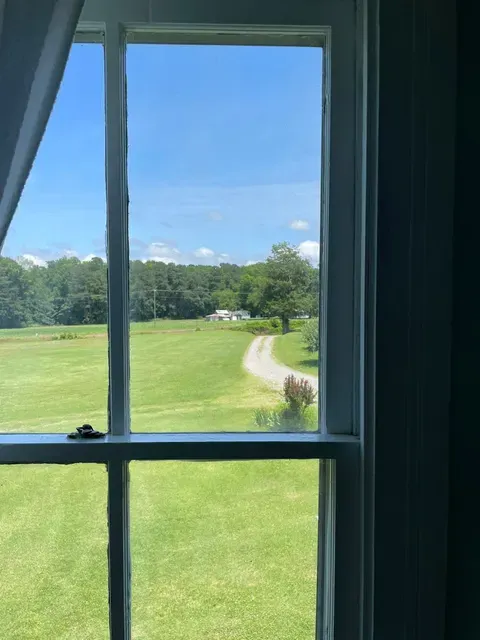
View of property from B&B guest room.
Calls to action- for you and for me!
For you.
- Visit Historic Peace Hill Farm. Attend events, hike the trails, sign up for an Afternoon Tea!
- Stay at Historic Peace Hill Farm: book a room at the B&B, rent out the Hen House cabin or inquire about camping stays!
- Follow Susan and her team on social media- click here for Facebook and here for Instagram. And further... follow Susan's Instagram account- she's not only ensuring her family's legacy, she's an active historian, writer, and "home-schooling guru." Click here.
For me.
My visit to Peace Hill Farm in Charles City County feels like it's only the beginning of my education there. In a county that has direct ties to the forging of our United States, I know it is actually.
After deciding to dive into blogging about American history, I stopped by Berkeley Plantation, and later the Richard M. Bowman Center for Local History. And now Historic Peace Hill Farm- I can truly say my interest in this special place is officially sparked.
Charles City goes beyond the scenic Route 5 I love so dearly. And I intend to continue exploring it!
RELATED:
Click here for my post about Berkeley, the Harrison family's ancestral home.
Click here to read about the Bowman Center and be inspired to find history where you live.
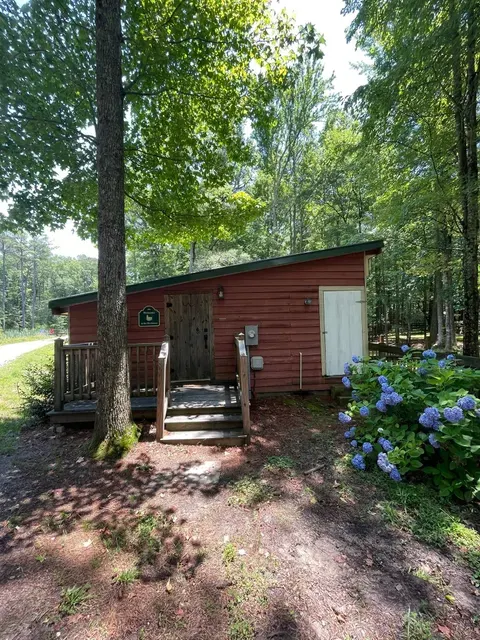
Henhouse rental cabin.
Closing words from history.
Before leaving Historic Peace Hill Farm, Susan took me to the most sacred of ground, her family's private cemetery. Taking a moment to be in a place where family members are remembered through marked graves, for me, is a special thing indeed.
At one of my favorite places to dig deeper into history, the John D Rockefeller Library, I researched further about the family who called Peace Hill home in the past. I found this gem compiling the records of those who came before us, specifically in Charles City County:
80% Heaven Bound: Deaths and Burials in Charles City County, Virginia compiled by Sherry Brown Tyler for the Charles City County Historical Society c.2000
From this reference book, I found more detail on Binns and Tench family members, which I found fascinating. Here are three of the children you can imagine having been part of the history at Historic Peace Hill Farm when you visit.
As they died so young, I wanted to share their names. I've included the author's note of indication of a "slave cemetery." The third child is under this note on page 307.
I feel compelled to share the third child along with the Binns children. Susan's passion for sharing the legacy of the black community and my continued pursuit of all history being our shared history makes finding this addition to book heartfelt.
(transcribed from above-cited book)
BINNS, Samuel C.
Death register: Samuel BINNS, 4 year old white male, died 14 SEP 1865, of congestive chill - son of J.C. & Sarah BINNS
BINNS, Lelia.
Death register: Lelia F. BINNS, died SEP 1879 - white female died in Chickahominy District - age 17 - daughter of Fielding W. & Virginia BINNS
Carter.
Death register: male slave of of James M. WILLCOX, died at "Peace Hill," of pneumonia, age 1 year, 3 months (JAN 1854)
Are you enjoying this blog? Want me to keep exploring and sharing what I find? Use my online tip jar and buy me a coffee:
There is a huge practical disclaimer to the content on this blog, which is my way of sharing my excitement and basically journaling online.
1) I am not a historian nor an expert. I will let you know I’m relaying the information as I understand and interpret it. The employees of Colonial Williamsburg base their presentations, work, and responses on historical documents and mainly primary sources.
2) I will update for accuracy as history is constant learning. If you have a question about accuracy, please ask me! I will get the answer from the best source I can find.
3) Photo credit to me, Daphne Reznik, for all photos in this post, unless otherwise credited! All photos are personal photos taken in public access locations or with specific permission.
